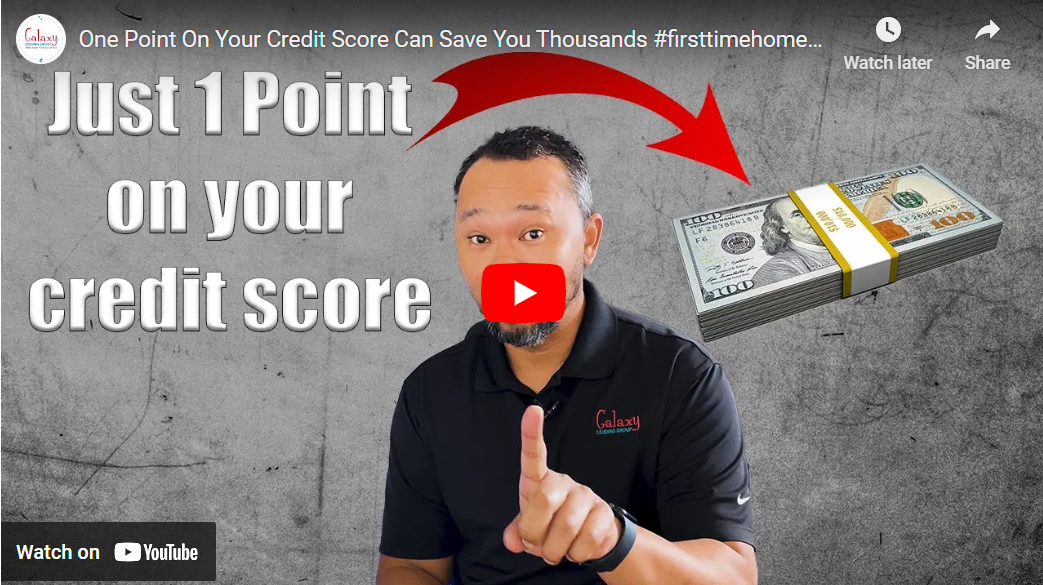What Types Of Home Loans Are There?
Buying a home is a big decision, one that will affect the rest of your life. This leaves many first-time buyers wondering where to start. Making sure you fully understand the different types of home loans can help provide the vital information you need in order to make an informed decision.
What are the different types of home loans available and what are the pros and cons to each? As you prepare to become a home owner, working closely with a trusted lending company can help make the home loan process stress-free. Consider your options and look at the fine details to ensure you are making the right home loan choice.
Different Types of Home Loans Explained
If you’ve found the process of choosing the right type of home loan that fits your personal needs and budget to be difficult, knowing the difference between each type can help. Visiting with a Galaxy Lending Group lender about the different options available to new home buyers, as well as becoming informed about the types of home loans available can help make your home-buying dream a reality.
Fixed vs. Adjustable
As a first-time home buyer one of the first steps to obtaining the right mortgage is choosing between a fixed-rate or adjustable-rate loan. Every loan available fit into one of these categories or a combined “hybrid” category. The differences between the two types are;
Fixed-rate mortgages are loans that have the same interest rate for the entire life of the loan. Because the interest rate stays the same, or is fixed throughout the term of your repayment schedule, your monthly loan payment will never change. Month after month and year after year, the monthly payment you make on your home loan will stay exactly the same. Even for long-term financing, i.e. a 30-year fixed-rate loan.
Adjustable rate mortgages are a type of home loan that has an interest rate that can “adjust” or change throughout the life of the loan. Many adjustable rate mortgages will change every year after experiencing an initial period of the remaining fixed-rate loan balance. In this case, the “hybrid” affect becomes evident. A hybrid adjustable rate mortgage loan begins with a fixed-rate interest rate, before switching to an adjustable interest rate. For example; the 5/1 Adjustable rate loan has a five year fixed interest rate, after which the interest rate begins to adjust every year after.
Fixed Rate & Adjustable Rate Loans : Pros & Cons
Just like any other loan, understanding the pros and cons are imperative to your ability to make an informed decision. An adjustable rate mortgage typically begins with a lower interest rate than a fixed loan, but the adjustment period is a con. With this in mind, know that your mortgage payments can differ year to year, often raising as the period of loan carries on. The best aspect about a fixed rate loan is your interest rate and monthly payment remain the same over the entire repayment period. But, note that you will pay through higher interest rates to have this stability.
Government Insured vs. Conventional Loans
As explained above, you will have decided between a fixed rate and an adjustable rate mortgage type. Once you have made that decision, there are additional options to consider. You will need to determine whether you prefer a government insured home loan (FHA or VA) or conventional type of loan.
A conventional loan is not insured or guaranteed by the government at all. This is how it is distinguished between the different types of home loans that are backed by the government. You do not have to have perfect credit to become eligible for a conventional loan. Conventional loans offer 3% down to compete with FHA for primary residences. The three types of government insured loans are as follows;
FHA Loans: The Federal Housing Administration or FHA harbors a mortgage insurance program that is managed directly by the Department of Housing and Urban Development or HUD. HUD is an arm of the federal government making the loan process different. FHA loans can be accessed by everyone, not just for first-time home buyers. In the case of a FHA loan, the government insures the lender for any losses they may experience as a result from borrower default. The best advantage of a FHA loan is that it allows home buyers to make a smaller down payment, often as low as 3.5% of the overall purchase price. A con to an FHA loan is home buyers will have to purchase mortgage insurance, which makes the monthly payment a bit higher. Another element that goes into applying for FHA loans is there are maximum loan limits that vary by county. You can look up your maximum limit for your county by going to the HUD website.
VA Loans
The U.S. Department of Veteran Affairs provides those who have served in the military and their families a loan program to obtain a mortgage. Different than the FHA loan, a portion of your loan is guaranteed by the VA. In the case of a loan default, the VA pays the bank their losses up to 25% of the loan. The biggest advantage to this type of loan is borrowers can receive up to 100%. Although the financing portion can be 100% this is only available up to the conforming loan limit that is currently $417,000. VA loans can also assist with a down payment under this type of loan, a major benefit for those who need help coming up with a down payment for this type of loan.
USDA / RHS Loans
The United States Department of Agriculture or USDA offers programs for borrowers who want to purchase property in rural areas. This loan option is managed by the Rural Housing Service or RHS, which is an arm of the Department of Agriculture. This type of loan program is only offered to those who have steady, but low or modest income and they are not eligible for loans through conventional funding options. USDA also offers 100% financing and depending on the property appraisal amount, closing costs can be included in the loan amount. Borrowers must meet these requirements to be considered for a USDA/RHS loan. To find out more about the requirements and property eligibility go to the USDA website.
Jumbo vs. Conforming Loan
Because home loans are sometimes complicated in nature, there is another element to include and it is based on the amount or size of your loan. Depending on the amount you intend to borrow you may fall into these two categories: jumbo or conforming.
A conforming loan meets the underwriting guidelines for the Fannie Mae or Freddie Mac mortgage programs. Fannie and Freddie are government controlled corporations that buy and sell mortgage backed securities. Thus, each corporation buys loans from lenders and sells these loans to Wall Street. A conforming loan meets their maximum loan size, and in other words, “conforms” to pre-determined criteria.
A jumbo loan is where the loan you need exceeds the amount dictated by a conforming loan size. These are based on the limits in place by both Fannie Mae and Freddie Mac has in place for home loans. The jumbo loan tends to be at a higher risk for lenders, mainly because of the size of the loan. Jumbo loan recipients must have excellent credit and typically provide a larger down payment.
Contact Galaxy Lending Group to find out which loan is right for you. We offer lending options in Washington, Oregon and Arizona. Let us get you on the road to homeownership.





